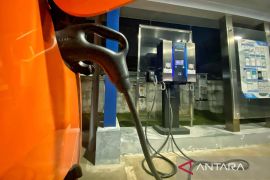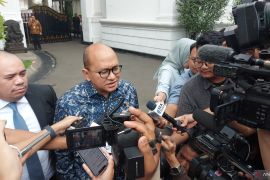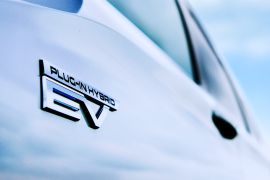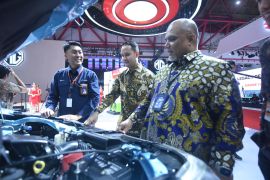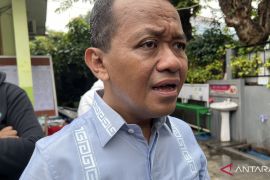"The industry needs more investment to develop electric car," Jonan stated in his opening remarks during the "Mining Day" celebration in Jakarta.
He further explained that a plan to ban fuel-based car in 2040 would cause several problems to the industry. However, if the industry receives a big investment to manufacture and develop the car, the plan can be fully implemented by 2050.
Earlier, the Ministry of Industry, along with some stakeholders, had launched a driving test for 10 electric car prototypes.
"The car prototypes would be tested by Transportation Ministry and Environment Ministry, while we draft the regulation," Industry Minister Airlangga Hartarto noted, while adding that the vehicle developments need to be supported by high-tech infrastructure.
According to the minister, the current problem is that the number of car manufacturers outnumber the distributors.
"Hence, we still have to prepare the technology and infrastructure for electric car production. For example, we need to set up a charging station and the portable battery, which could last for 200-300 kilometers," Hartarto remarked.
Therefore, he remarked that some incentives, both fiscal and non-fiscal, remain important to support the electric and hybrid car development.
The incentives, according to the minister, would accelerate the car development in the country.
"It (the incentives) could be utilized to set up a research center and for the development of the electric car components, such as batteries, control power units, and some local-made supporting engines," he reiterated.
Earlier in July, President Joko Widodo stated that the electric car development would help address climate change impacts.
"We should conduct research on the development of electric cars. All parties have started their research on electric cars," the president noted in Jakarta.
Some developed countries, such as US and several European states, have partly lowered the use of fuel-based cars and switched to the more environmentally friendly electric or power-based vehicles.
According to the UNs Sustainable Development Goals (SDGs) indicator, reducing the use of fuel-based engine would support the global missions of lowering the earths temperature and easing the impacts of climate change, such as drought and extreme weather.(*)
Editor: Heru Purwanto
Copyright © ANTARA 2017
